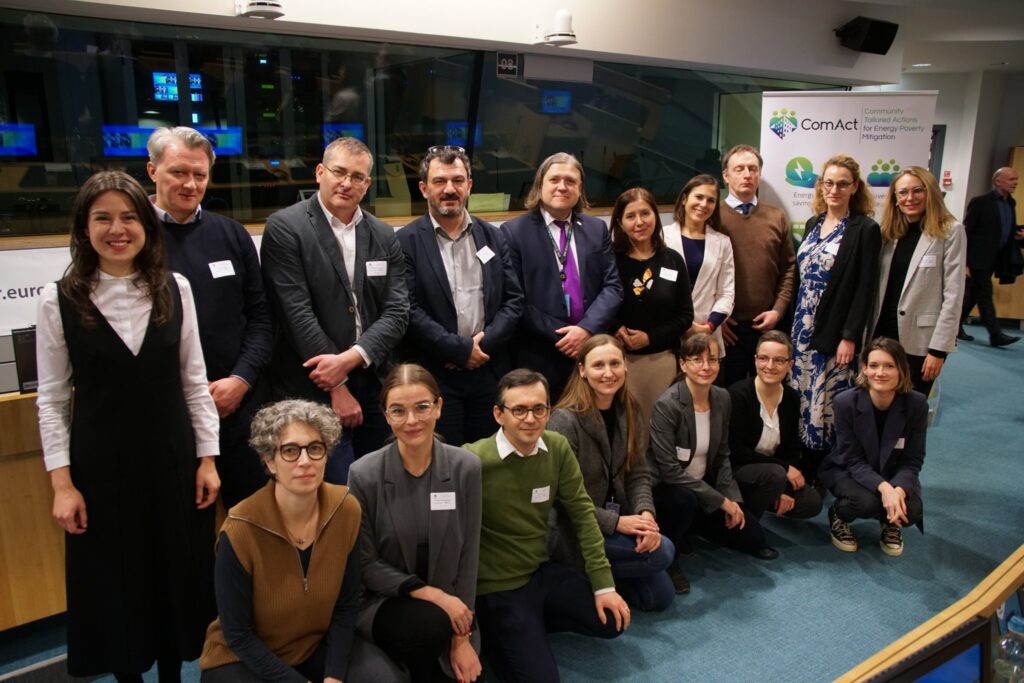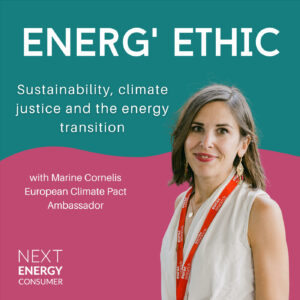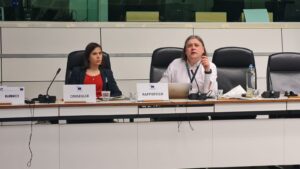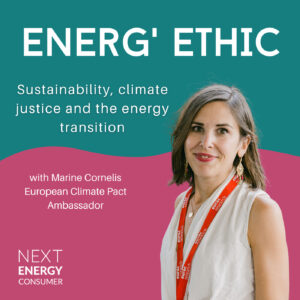In recent weeks, the spotlight on European housing renovation has intensified, showcasing innovative paths toward sustainability and inclusivity. As a speaker at the Belgian Energy Renovation Week and the ComAct project‘s final conference, I’ve witnessed first-hand the transformative discussions reshaping our approach to making homes energy-efficient, equitable, and community-focused.
The Belgian Energy Renovation Week: A Call for Action
Organized by the Belgian Presidency of the Council of the European Union 2024, the Belgian Energy Renovation Week emphasized the urgent need for a collective leap in the quality and pace of renovations across Belgium and beyond. I underscored the importance of crafting compelling narratives around renovation, suggesting that the journey of transforming our homes should be as inviting as the prospect of George Clooney welcoming us into a freshly renovated space (with a cup of coffee). Yet, beyond the allure of a “sexier” narrative lies a vast array of challenges – from mobilizing the right skills and materials to ensuring the process is socially fair, and avoiding the pitfalls of “renovictions.”
The dialogue during the week highlighted the necessity of engaging a diverse range of stakeholders, including those from marginalized communities who are often overlooked in policy-making processes. This approach is not merely a procedural requirement but a fundamental step toward fostering genuine agency and participation in the energy transition.
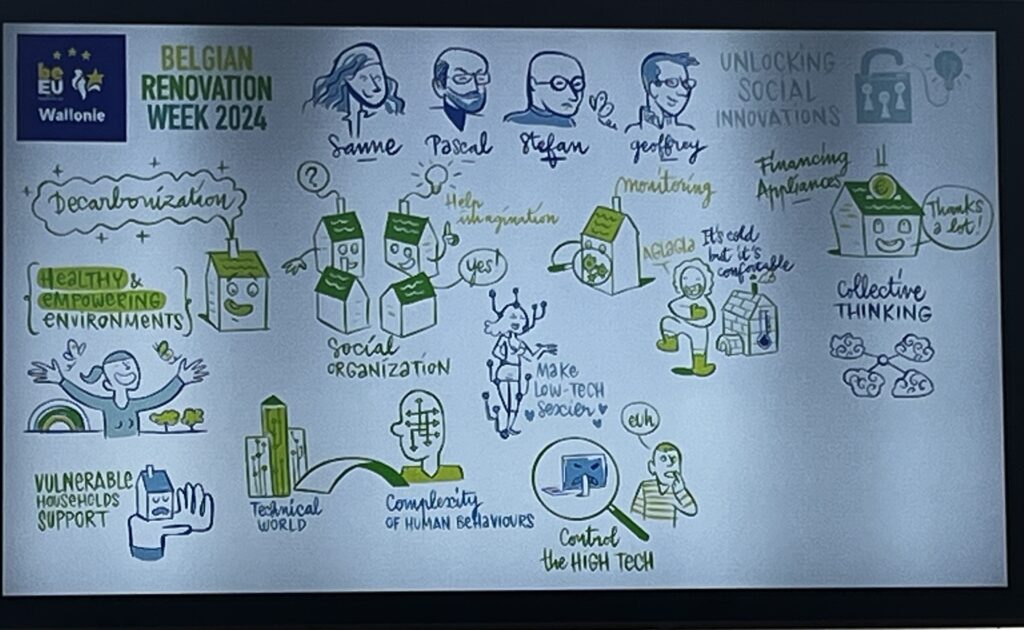
The ComAct Conference: Addressing Energy Poverty in Central and Eastern Europe Through Renovation
The ComAct project’s final conference highlighted the critical issue of energy poverty, particularly in Central & Eastern Europe’s older, multi-family buildings. The discussions revolved around the holistic improvement of living conditions, where renovation projects are seen as a means to enhance energy efficiency and as a catalyst for community well-being and sustainability.
Trust and courage were identified as essential ingredients in this endeavor, underscoring the need for confidence in the processes, intermediaries, and the collective effort to overcome current challenges, including the impacts of COVID-19 and the war in Ukraine. I stressed the importance of inclusive dialogue, ensuring that everyone, from sidelined individuals to key decision-makers, has a voice in shaping a future that benefits all.
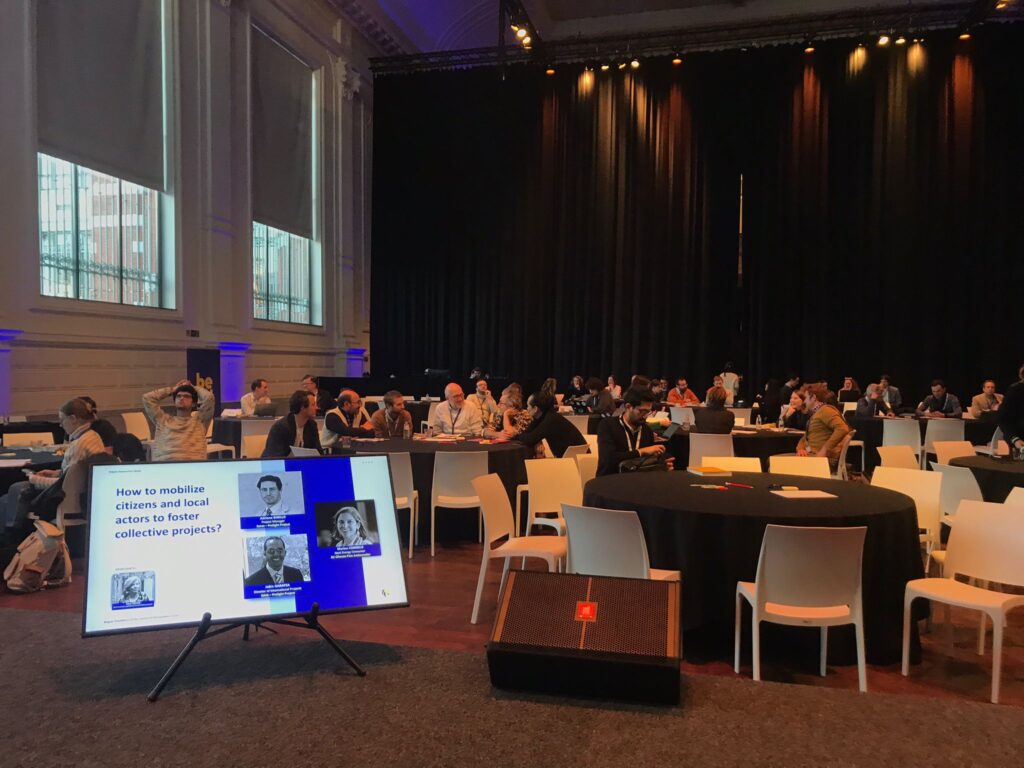
Navigating the Renovation Landscape
Both events echoed themes from my research report, “How to Avoid a Renoviction Wave” (commissioned by FEANTSA), highlighting the necessity for a socially equitable and environmentally sustainable housing renovation approach. As Europe marches toward climate neutrality, the role of one-stop shops (OSS), community engagement, and innovative tools like “Mass Customisation” become increasingly crucial.
These platforms and initiatives provide comprehensive support to homeowners and communities navigating the housing renovation process, ensuring that sustainable practices are accessible and aligned with the broader aspirations of community development and energy justice.
Looking Ahead
Rob Hopkins, a keynote speaker at the Belgian Renovation Week and podcast host, remarked that everything we need to make this transition happen already exists. It’s a matter of inspiration, imagination, and the willingness to embark on what may initially seem a ridiculous journey. The message is clear: the renovation of our homes and communities can be a beacon of hope, a testament to what we can achieve when we align our efforts towards a sustainable, inclusive future.
It is about the buildings we live in, the communities we nurture, and the sustainable future we envision. I strongly believe that together, we can create spaces that save energy and foster resilient, empowered communities.
The ARTE Interview: Illuminating the European Energy Poverty Crisis
Last week, I also had the honour of speaking with European TV station ARTE, shedding light on the European approach to combating energy poverty. I stressed individuals’ need to leverage available tools and rights to break free from the shackles of fuel poverty. I underscored the urgency of addressing summer energy poverty, a phenomenon affecting a staggering 20% of Europeans and a pivotal aspect of building climate resilience.
For more insights and detailed analysis, check the report on “How to Avoid a Renoviction Wave, Report on the social impacts of the Renovation Wave“, where I delve deeper into the strategies for ensuring that housing renovation and the transition to energy-efficient living is desirable, equitable, and sustainable.
